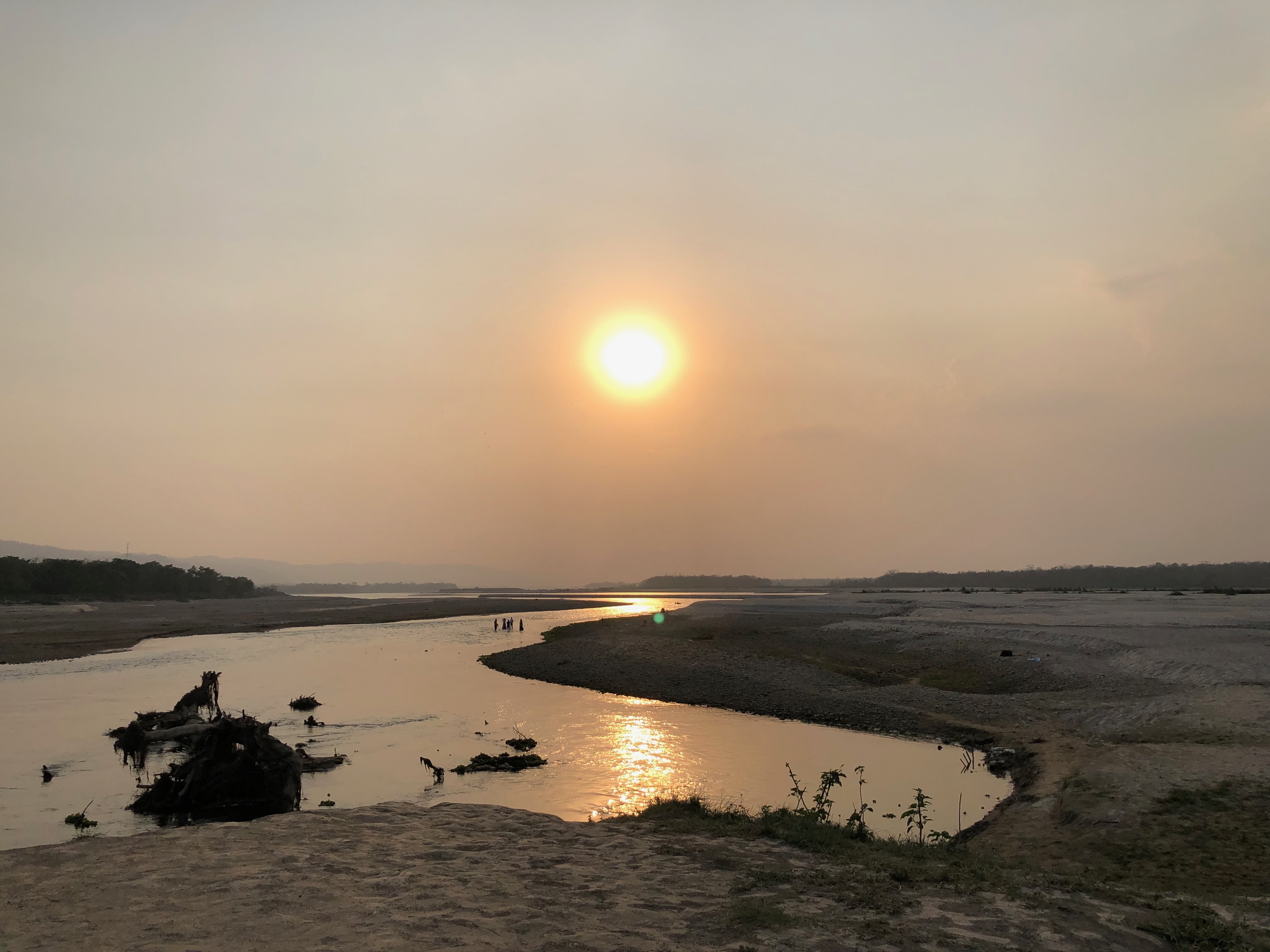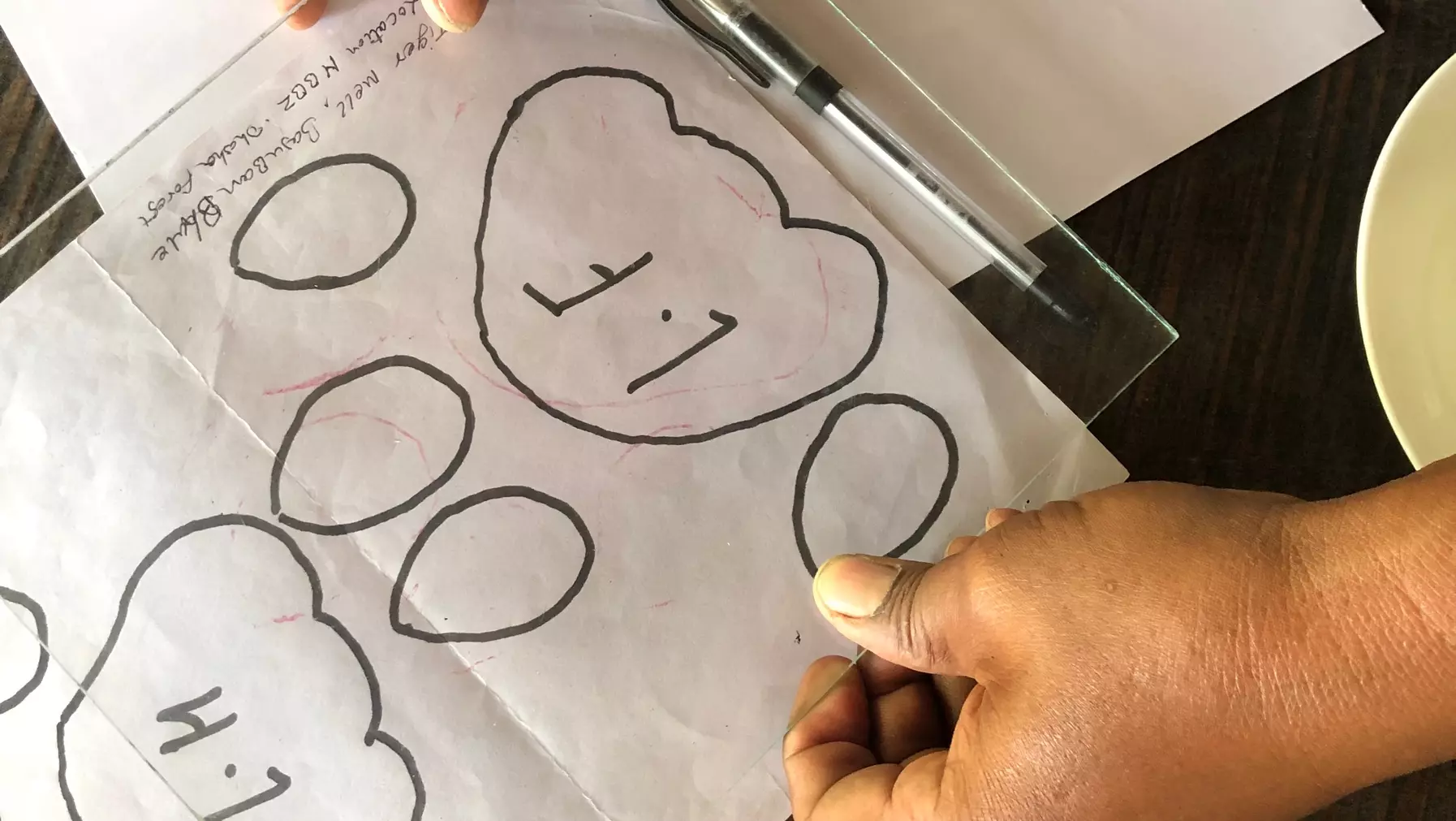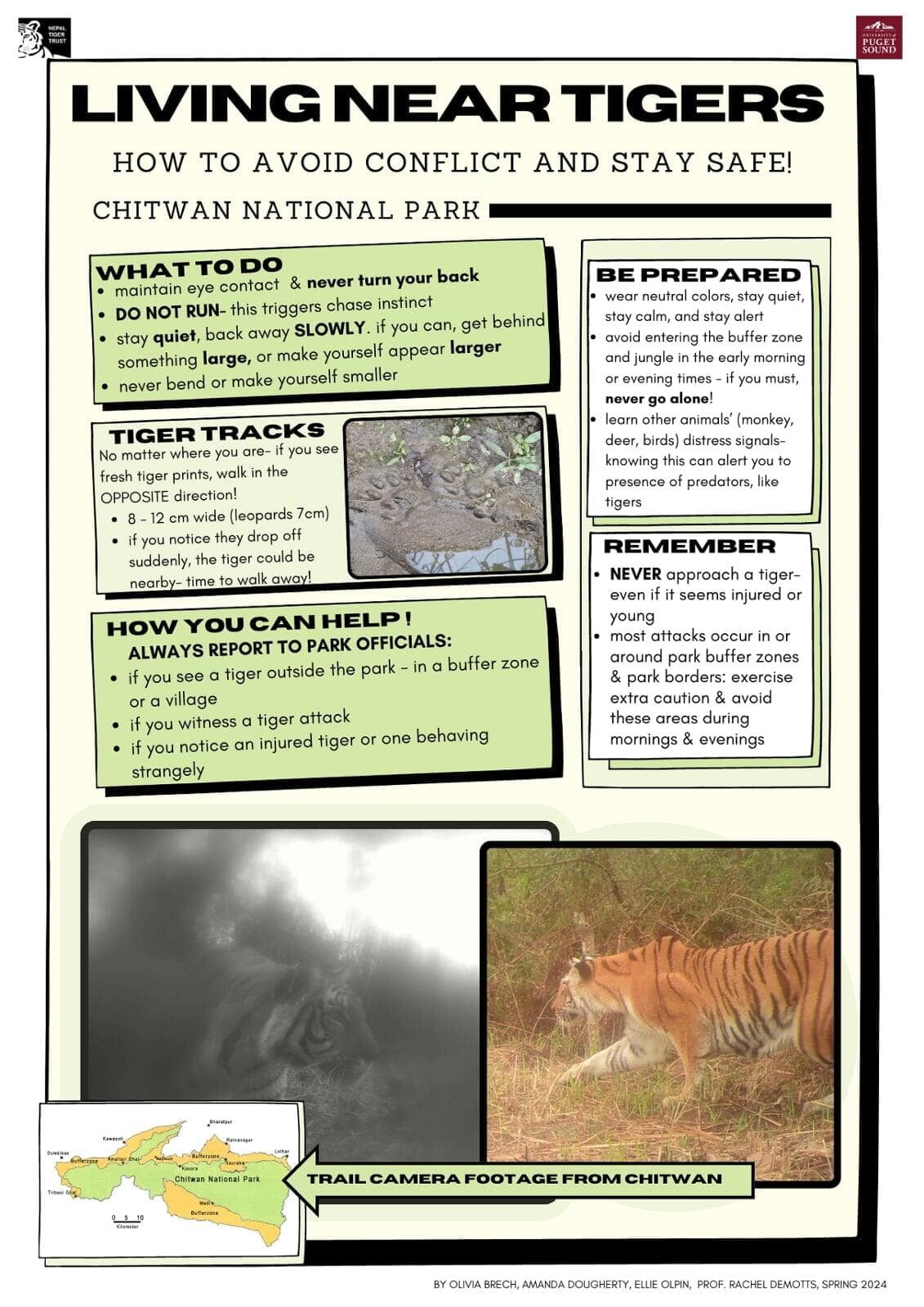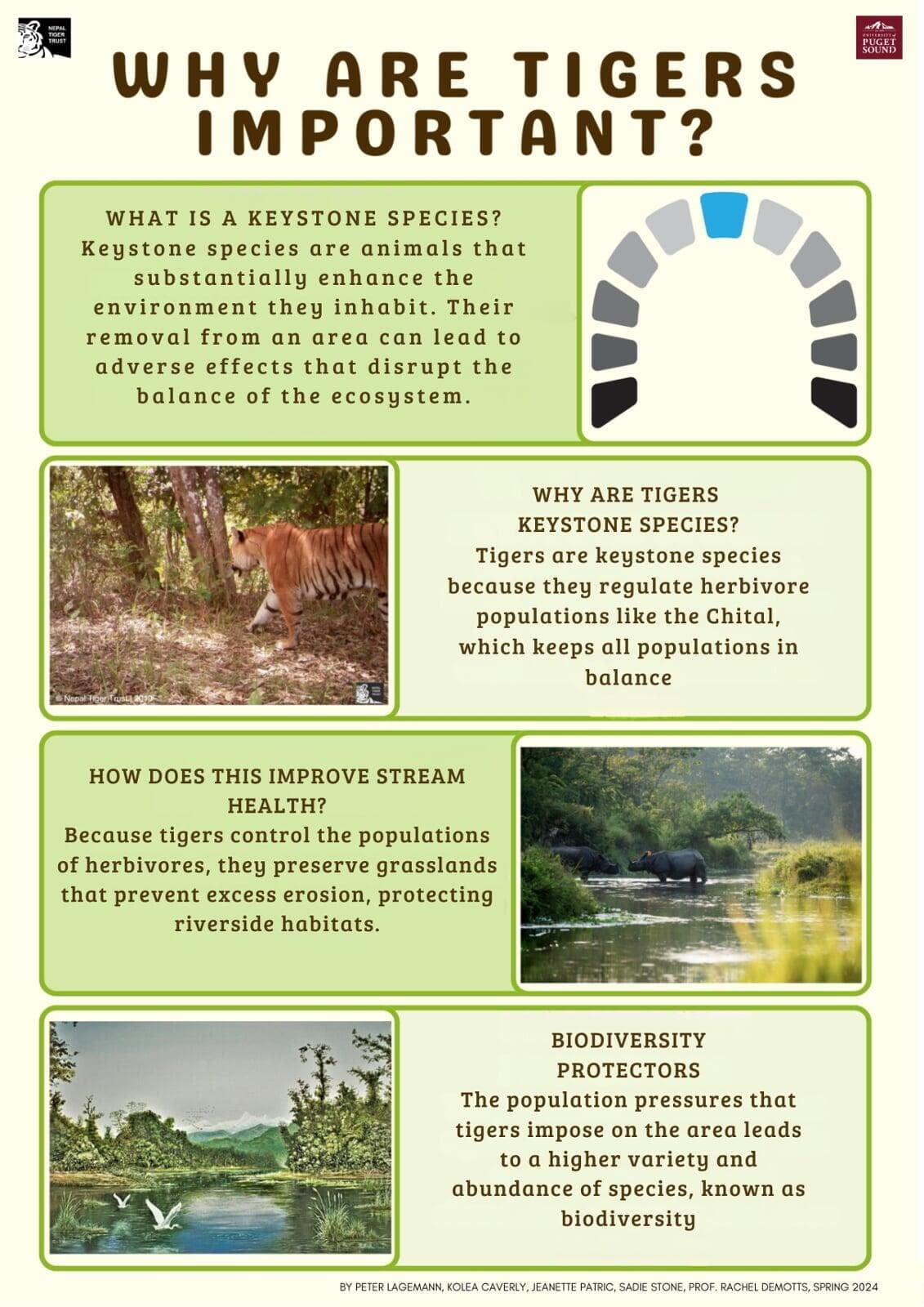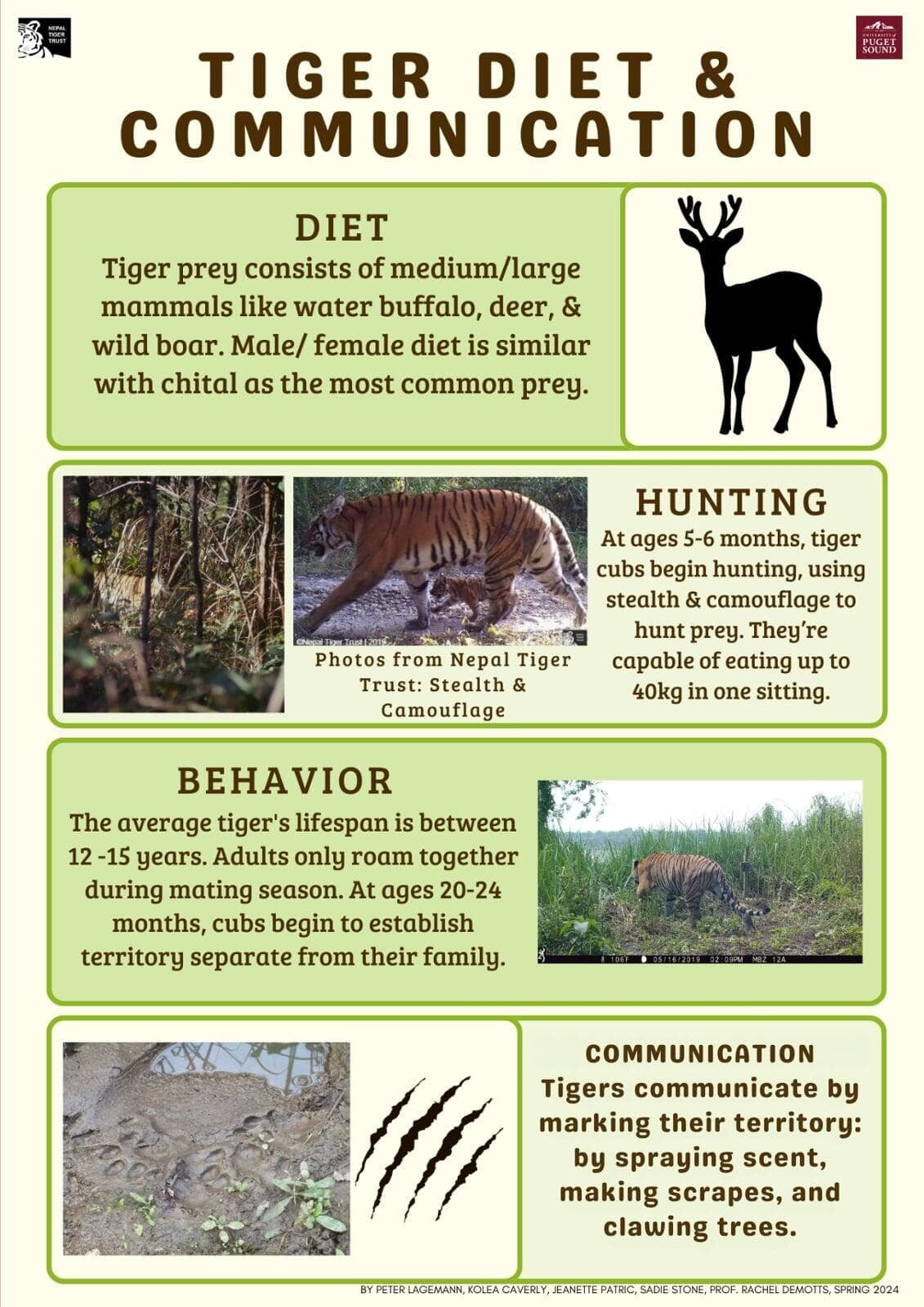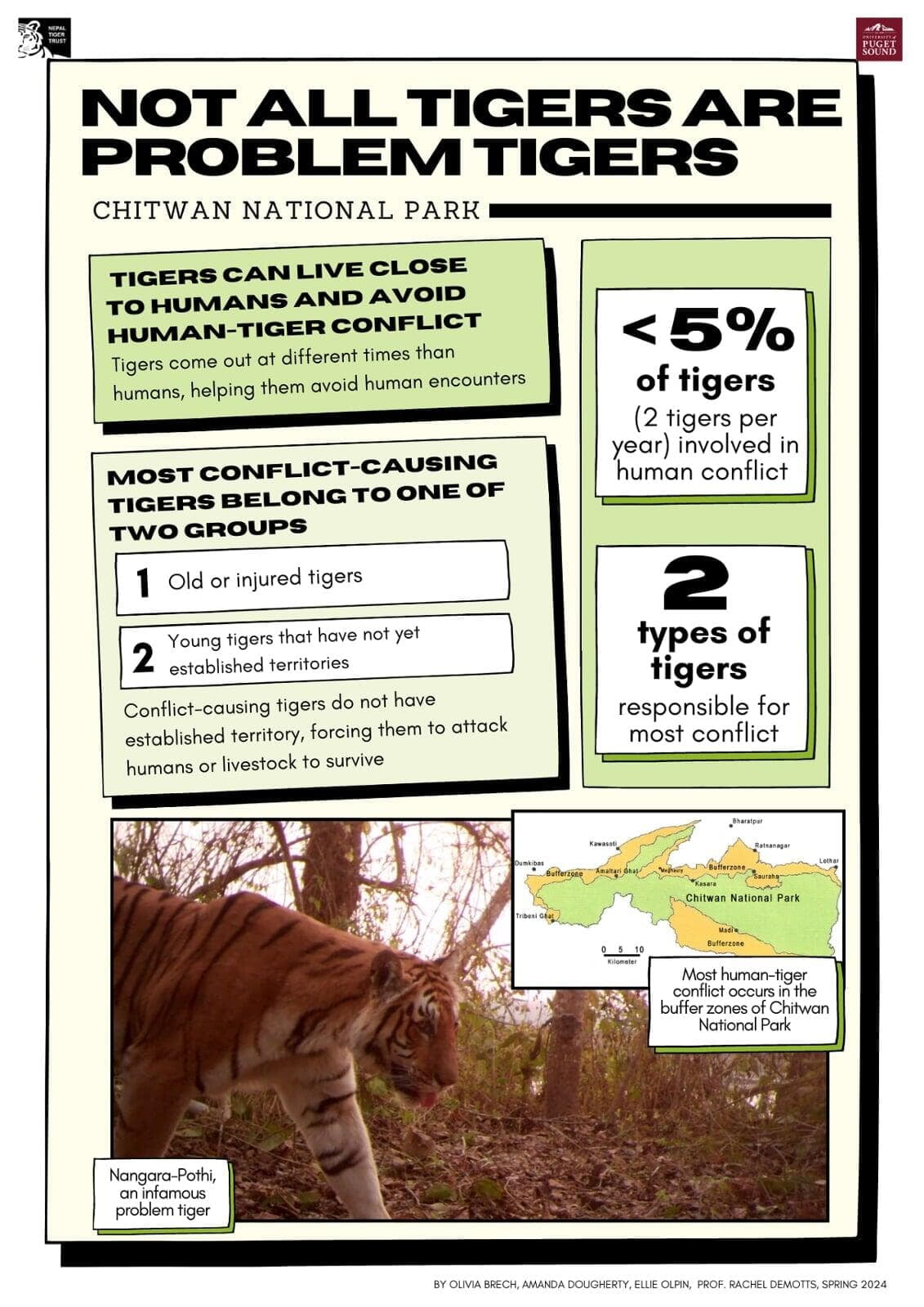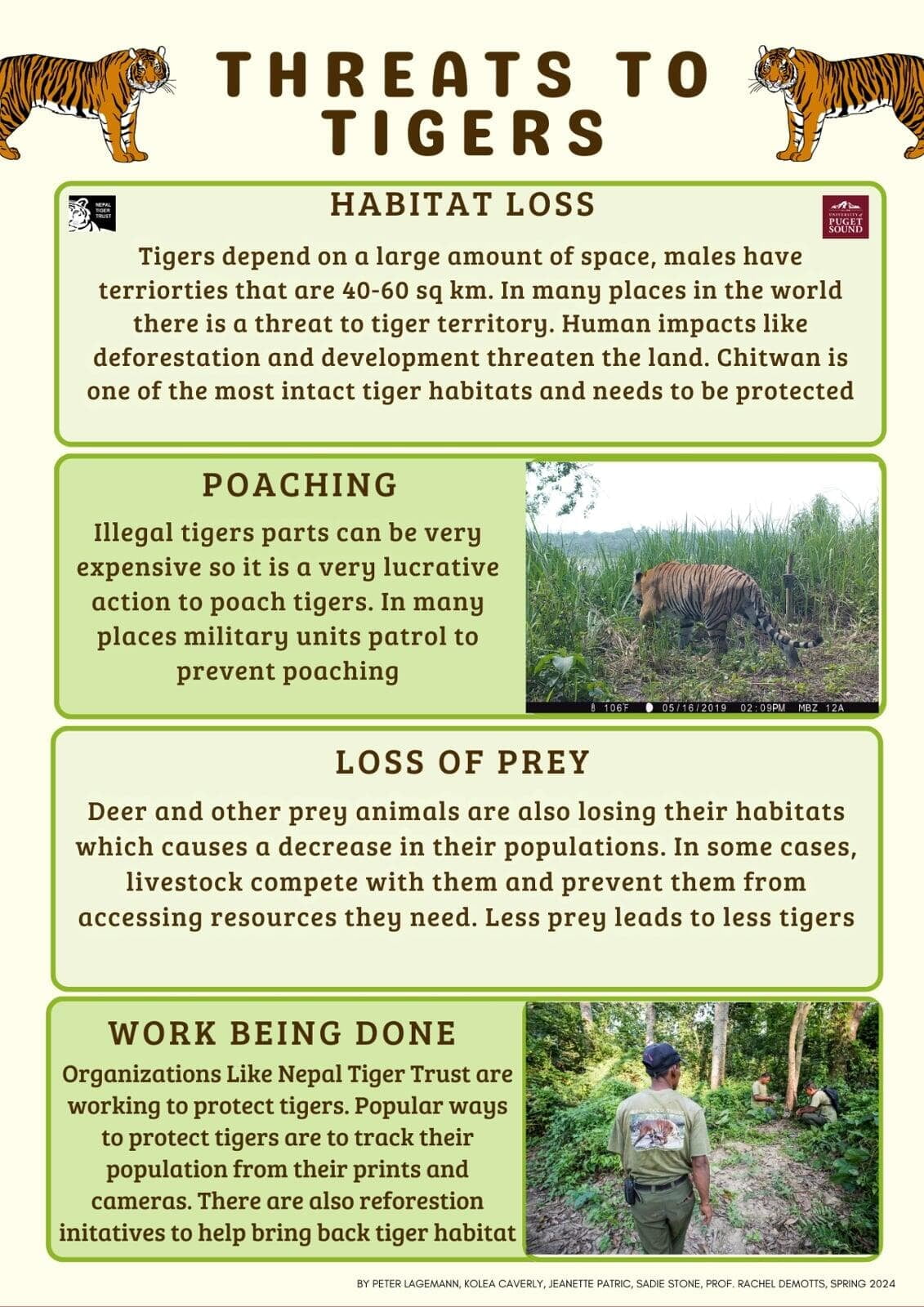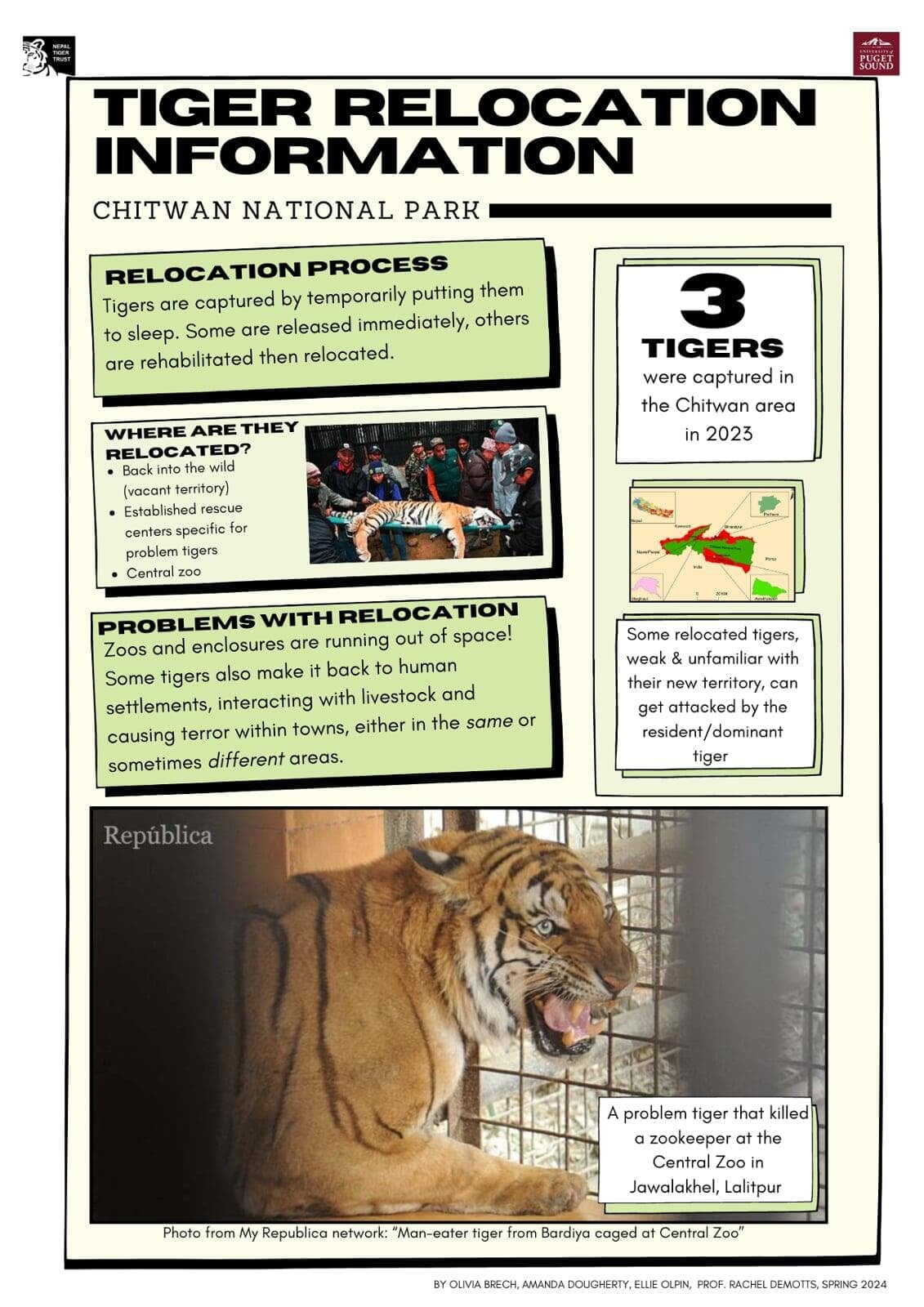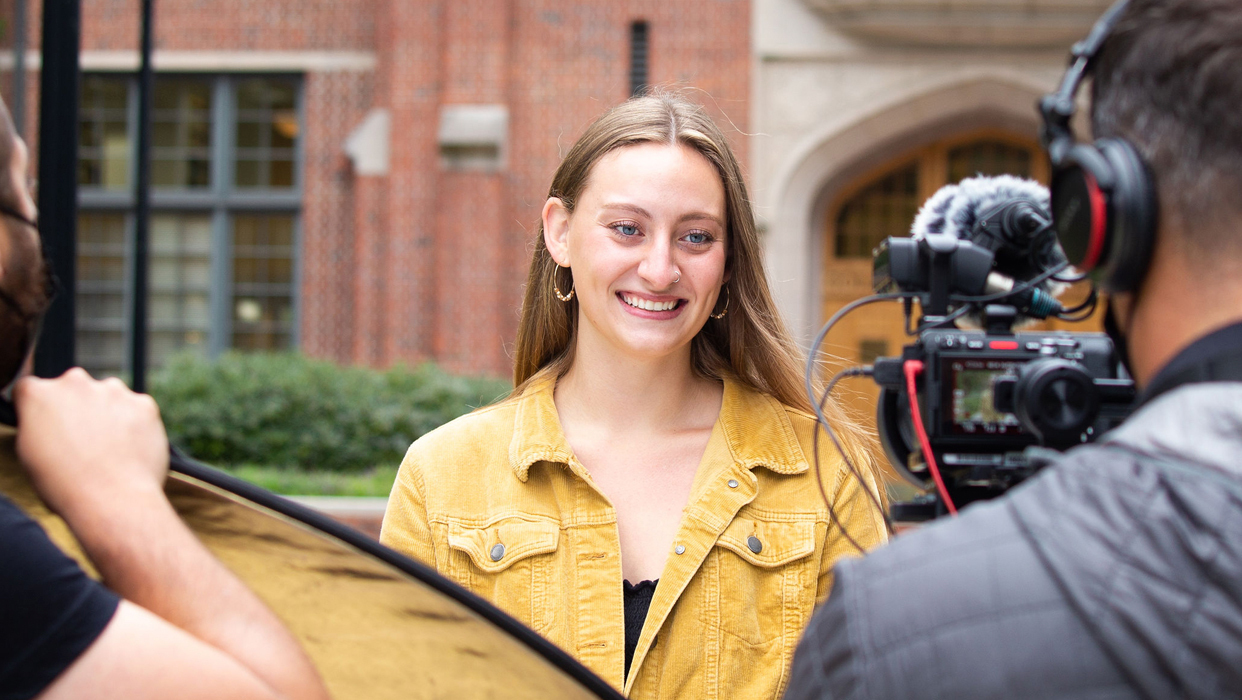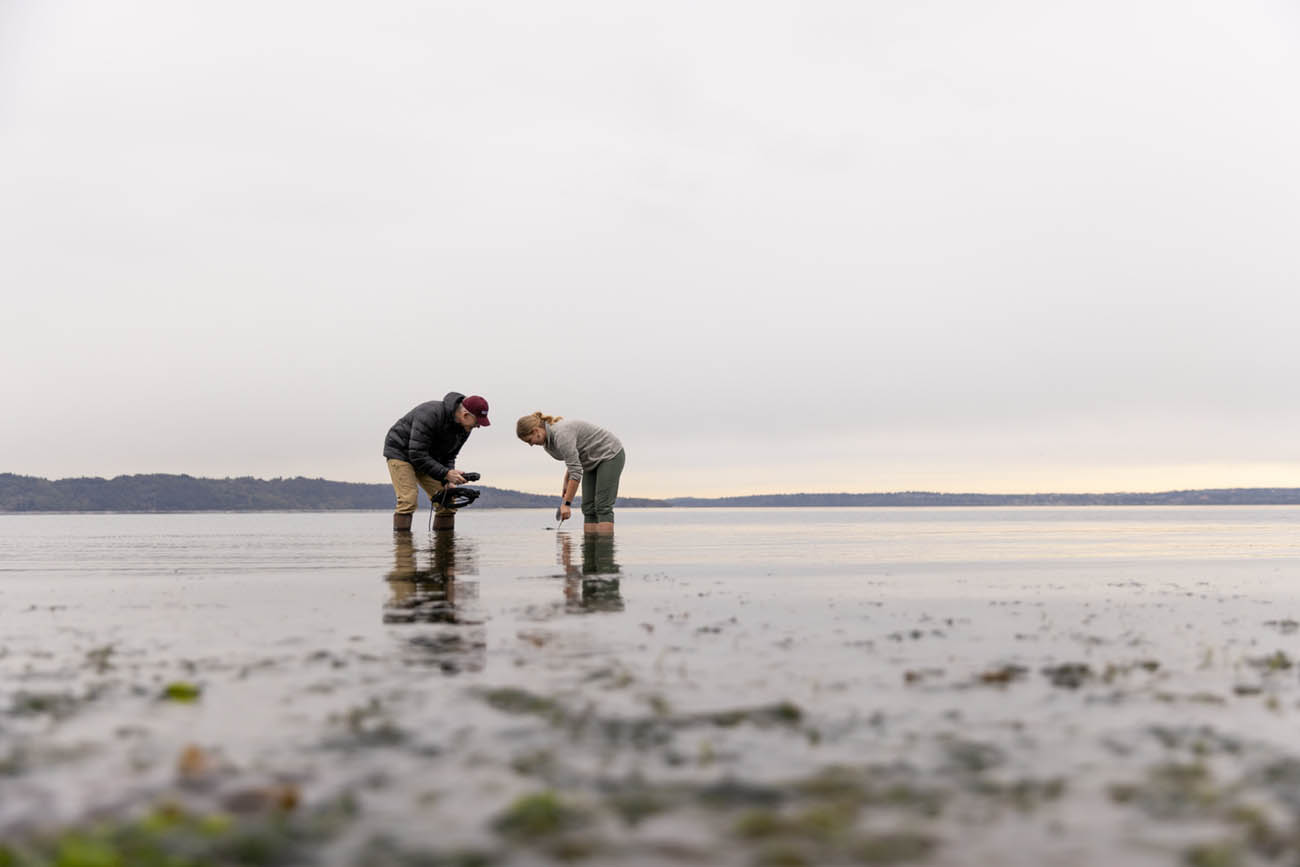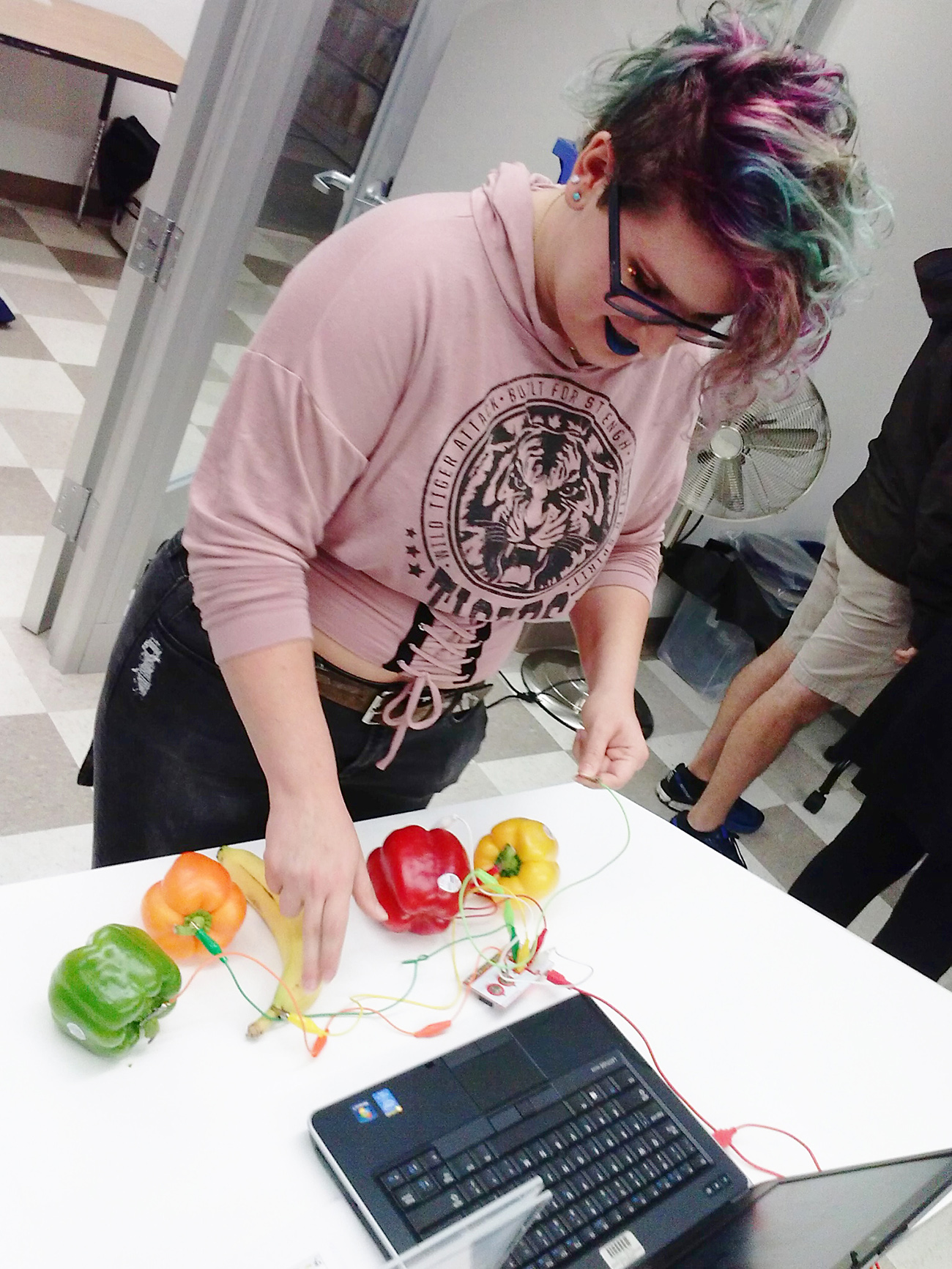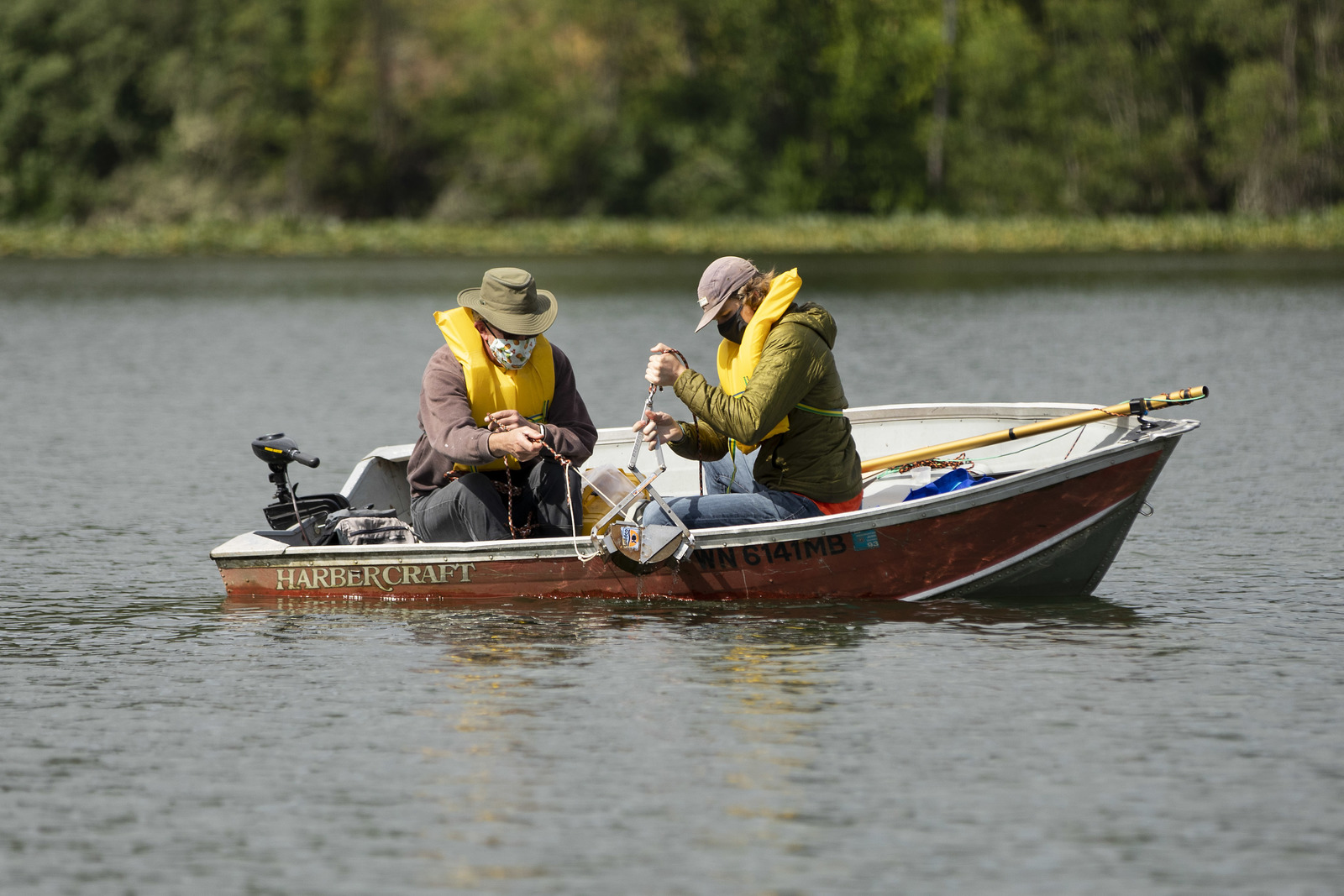Students in Prof. Rachel DeMotts’ class developed educational materials for the Nepal Tiger Trust
In the lowlands of Nepal, near the Indian border, humans and tigers have coexisted for centuries. After years of declining numbers, tiger populations are now growing, putting pressure on resources like food, water, and land that are shared with nearby farms and villages—and leading to increased conflict between humans and tigers. Nepal Tiger Trust is a nonprofit group that tracks tiger populations in Chitwan National Park and tries to educate local communities about their wild neighbors. Their latest educational campaign includes a suite of posters and social media graphics developed by students halfway around the world at the University of Puget Sound.
“The class was called ‘People, Politics, and Parks’ and the posters were our final project,” says Kōlea Caverly ’25, who is majoring in environmental science and environmental policy and decision making at Puget Sound. “As somebody who wants to do conservation work in the future, I thought it was a great overview of how work is done in the field and the policy side of national parks.”
The course is taught by Professor of Environmental Studies & Sciences Rachel DeMotts. DeMotts is a political scientist by training with an interest in political ecology—the study of how politics and economics intersect with the natural world. Most of her research has focused on communities living near national parks in Botswana and Namibia, but she also has a longstanding interest in meditation and Tibetan communities in exile, which led her to a monastery in the Nepali capital city of Kathmandu. While staying at the monastery, she met a German ecologist who, in turn, introduced her to Prakash Shrestha and Gauri Malakar—both of whom provide leadership in the Nepal Tiger Trust. DeMotts was interested in their community-based approach to conservation work and thought her research interests might align with their needs.
